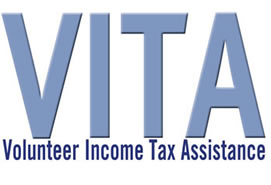
| Website | E-Mail Me| Newsroom | Subscribe | Unsubscribe |
February
Keaveny Connection |
Contact: Stacy Morse
(573) 751-3599 |
Missouri Nondiscrimination Act
Clarifying Commercial Receivership Law
Making Missouri Drivers Safer
Studying the Costs of the Death Penalty |
Ending Corporal Punishment in Missouri Public Schools
Reforming Missouri's Criminal Procedures
Tax Assistance Available Regarding New ACA Mandates |
| Missouri Nondiscrimination Act |
 |
The Missouri Nondiscrimination Act would add sexual orientation and gender identity to the list of protected categories under the Missouri Human Rights Statutes.
|
We live in a modern, developed state that has always prided itself on the fair application of justice for all citizens, regardless of race, religion or creed. Yet, we withhold these basic rights to individuals because of their sexual orientation or gender identity.
This year, I’m proud to file Senate Bill 237, also known as the Missouri Nondiscrimination Act (MONA), which would add sexual orientation and gender identity to the list of protected categories under the Missouri Human Rights Statutes.
Hard-working citizens deserve equal treatment under the law, and should have the opportunity to provide for themselves without fear of being legally fired for personal decisions that have absolutely nothing to do with job performance.
Numerous Missouri businesses have indicated their support of this effort. According to a 2013 Small Business Majority Poll, 71 percent of small business owners in Missouri believe the state should have a law prohibiting discrimination against gay and transgender workers.
In 2014, more than 540 businesses from across the state pledged their support for a nondiscrimination law protecting gay and transgender people. These businesses included Fortune 500 companies to small, locally run mom-and-pop stores.
This is about treating others how we want to be treated. Nobody should be discriminated against. |
| Clarifying Commercial Receivership Law |
 |
| Senate Bill 216 would create a more uniform set of statutes when courts deal with commercial receivership cases. |
|
Commercial receivership is a legal process by which a court appoints an entity or individual to be responsible for the property, assets and rights of a business. It’s a court action often sought when a company can no longer meet its financial obligations, and is often used as an alternative to bankruptcy, which can be a slower and more costly process.
The increased use of commercial receiverships in recent years has created complications in Missouri’s judicial system. Some courts rarely see these types of cases, and without existing statutory law, there can be interpretation questions can arise or uncertainty as to the appropriate means of administering a commercial receivership estate. It’s creating a number of problems, especially if the company is still operating.
This year, I filed Senate Bill 216, which would create a more uniform set of developed, standardized statutes and guidelines for when courts are faced with the duty of administering a commercial receivership estate. The measure would establish clear-cut, defined law as it relates to this legal practice, so that it’s employed in a consistent manner, and justice can be provided fairly, evenly and predictably, with the recognition of the rights of all parties involved.
It’s important we establish clarity in regards to commercial receivership cases in this state. My measure is a much-needed solution, which I was proud to collaborate on with the Missouri Bar. We have a duty as legislators to strengthen and correct existing Missouri law. That’s what this measure would do. |
| Making Missouri Drivers Safer |
 |
| Buckling up increases an individual's chances of surviving a vehicular accident by as much as 45 percent. |
In an effort to encourage more Missouri drivers to wear their seatbelt, this year I’m sponsoring Senate Bill 236, which would increase the fine for seatbelt violations from the current $10 to $50.
Studies confirm that higher fines for seatbelt violations contribute to increased use, which in turns makes motorists safer. Moderately increasing our state seatbelt fine is a common-sense way to encourage more drivers and passengers to fasten their seatbelt, saving lives.
According to the Governors Highway Association, among the 16 states with secondary seatbelt laws, Missouri’s fine is among the lowest. The state’s seatbelt use is also around 5 percent lower than the national average.
Troop F of the Missouri Highway Patrol reported:
- 1,457 vehicle crashes in 2014 in the 13 counties it covers;
- 73 resulted in deaths; and
- Around 50 percent of those individuals were not wearing seatbelts.
In fact, the Highway Patrol said most fatalities on Missouri roadways are due to drivers and passengers not buckling their seatbelts.
Teenagers, who are at a higher risk of being involved in an accident, wear their seatbelts around 63 percent of the time, according to a report by the Missouri Safety Center.
As parents, we need to educate our children on the safest driving practices. Chief among these is buckling your seatbelt. By increasing the fine, we can encourage teenagers the importance of taking a small step that could potentially save their lives. And, once a motorist establishes that habit early, they’re more likely to continue it into adulthood. This bill is simply about making Missouri drivers safer. |
| Studying the Costs of the Death Penalty |
The death penalty is the harshest punishment that we as a society can administer to a criminal. It is an irrevocable act that carries high ethical obligations on the part of the criminal justice system and the government. We need to know all the facts about the death penalty, including the costs associated with it.
This year, I’ve filed Senate Bill 240, which would require the State Auditor to issue a one-time report on the costs of administering the death penalty in Missouri. There has never been a study of this kind in this state. Taxpayers should know exactly what it costs them to sentence someone to death in Missouri, especially when we’re dealing with a budget based on a very limited amount of funds.
The Death Penalty Information Center conducted a report regarding the death penalty in Colorado. The study found death penalty proceedings took six times as long as life without parole cases. Furthermore, the report noted that if the governor of Colorado had commuted the sentences of those on death row, the state would have generated an immediate savings of around $170 million annually, even with the punishment changed to life without parole.
There are currently more than 30 inmates on death row in Missouri. To view the list, click here or visit http:/missourideathrow.com/current-inmates/.
In 2014, Missouri tied with Texas for executing the most inmates—10 in total for each state. |
| Ending Corporal Punishment in Missouri Public Schools |
 |
| Missouri is one of only 19 states that allow corporal punishment; of those, Missouri ranked ninth on a list of states where corporal punishment was used the most. |
Once again, I’m sponsoring legislation that would prohibit the use of corporal punishment in all public Missouri schools. If signed into law, the use of spanking or paddling by educators as a form of punishment would end statewide.
Currently, the Missouri Department of Elementary and Secondary Education requires each school district’s written discipline policy to include a portion dedicated to corporal punishment. The local school board is responsible for determining if and how it will be used, and whether a parent will be notified or can opt for an alternate type of discipline.
Senate Bill 241 would end the use of spanking or paddling as punishment in all public Missouri schools. Modern students, and first-person accounts from administrators and teachers alike, agree it is not an effective form of discipline.
Also, most parents are no longer comfortable with the idea of a non-family member, much less a public employee, administering this type of punishment. Children should feel safe at school, and shouldn’t fear physical harm from those tasked with protecting and educating them. |
| Reforming Missouri's Criminal Procedures |
 |
| Sen. Keaveny has long advocated for reforming Missouri's criminal procedures. |
I’ve filed two measures for the 2015 legislative session that would require best practices be in place as they relate to eyewitness identification procedures and custodial interrogations. The two bills are aimed at preventing procedural mistakes that can lead to wrongful convictions.
Senate Bill 303 would require police departments to implement simple, scientifically supported eyewitness identification procedures.
Recent studies have shown that eyewitness testimony can be incredibly unreliable, yet prosecutors have depended on this evidence to secure convictions. It’s resulted in numerous individuals being charged with crimes they did not commit.
I filed a second measure, Senate Bill 304, which addresses the interrogation of suspects. Typically, these interrogations are recorded.
Under current Missouri statutes, though, there are multiple exemptions that allow law enforcement to not record an interrogation, including lack of access to or damaged equipment. Senate Bill 304 would require officers to issue a written statement as to why the recording didn’t take place.
This measure isn’t aimed at policing the police. Instead, it’s a way to protect all individuals involved, including law enforcement. Under my bill, if a recording of an interrogation isn’t made, police officers will have a record indicating it was for a justifiable reason and that no misconduct took place. |
| Tax Assistance Available Regarding New ACA Mandates |
 |
| While there are still several months until the tax filing deadline on April 15, the Missouri Department of Revenue (DOR) suggests filing your taxes before the deadline to prevent a delay in getting a refund. |
Health Insurance and Taxes
The beginning of January marks the start of the tax filing season, when individuals and families submit their federal and state tax returns. This year, citizens face new a rule when completing taxes regarding the purchase of an insurance plan under through the Missouri Marketplace in 2014.
Enrollees will receive a Form 1095-A in the mail from the marketplace in early February. Individuals will use these when they fill out their federal returns. Those who didn’t have health coverage for part of 2014 will need to fill out a Form 8965 when filing taxes. This will show if you qualify for an exemption from paying a fee for the months you didn’t have insurance coverage.
For more information about how your Marketplace coverage will affect your taxes, visit www.HealthCare.gov/taxes/ or call the Marketplace Call Center at (800) 318-2596.
TTY users should call 1-855-889-4325.
If you have questions about your taxes, need Form 8962 or Form 8965, or want to learn more about the fee for not having health coverage, visit www.irs.gov.
Missouri Taxes
- Missouri tax forms for tax year 2014, and previous years, are available at www.dor.mo.gov.
- Call (573) 751-3505, from 8 a.m. to 5 p.m., Monday through Friday, for assistance.
- Email the Department of Revenue at income@dor.mo.gov with questions about filing tax returns.
Tax Assistance
- Electronic-filing is a service provided by almost all tax preparation agencies, or individuals can purchase tax preparation software that helps to avoid errors.
- The Internal Revenue Service has the Volunteer Income Tax Assistance (VITA) program, which offers free tax help to people who generally make $53,000 or less, persons with disabilities, the elderly and limited English speaking taxpayers who need assistance in preparing their own tax returns.
- The Tax Counseling for the Elderly (TCE) program offers free tax help for all taxpayers, particularly those who are 60 years of age and older, specializing in questions about pensions and retirement-related issues unique to seniors.
- To find a VITA or TCE site near you, click here or visit www.IRS.gov/freefile or www.IRS.gov/VITA.
- Many may qualify for free electronic filing through the Federal Free File Alliance.
- ElderLink St. Louis is offering to help senior citizens locate free tax help. Elderlink St. Louis can be reached at (314) 812-9300.
- The St. Louis Tax Assistance Program has locations throughout St. Louis. Click here for more information on its assistance guidelines and locations.
|
 |
|
|
